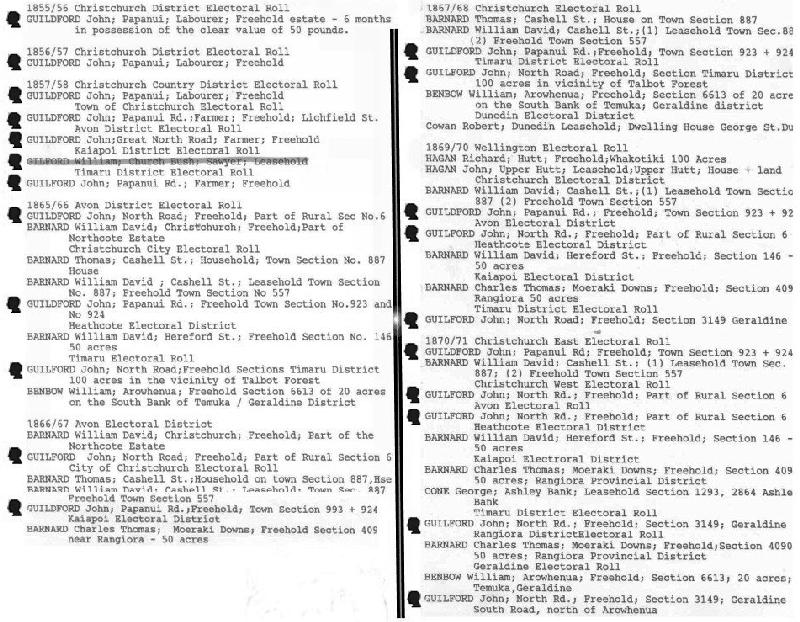|
Guilford/Guildford NZ Electoral Rolls - 1855 to
1857
In 1857 John Guilford voted on the first South Canterbury
Electoral Roll. Before then, any elector who chose to register appeared on
the Christchurch Country Roll. The electoral boundary for what was
originally known as the 'Timaru Electoral District' extended from the
southernmost branch of the Ashburton River to the Waitangi (Waitaki)
River. The earlist northern boundary of what was originally known as the
Southern Pastoral District was the Rakaia River. Although John lived
in Papanui, a farmer, and not in the South Canterbury district, he was
entitled to vote because he held property there.
In 1860 the right to vote was extended for the first time to
gold miners and any male British subject over 21 who held a miner's
right (i.e. held a licence which cost £1 per year) was entitled to vote
without having to enroll. Previous years, they had been excluded
under the property requirement as they lived in tents, in rough
shacks or lodging houses. All Maori men were able to vote from 1867 and
all European men from 1879. In 1893 New Zealand was the first country
in the world to enable women to vote in national elections.
NB |


 Indicates those
records pertaining to John Guilford or his
descendants
Indicates those
records pertaining to John Guilford or his
descendants


